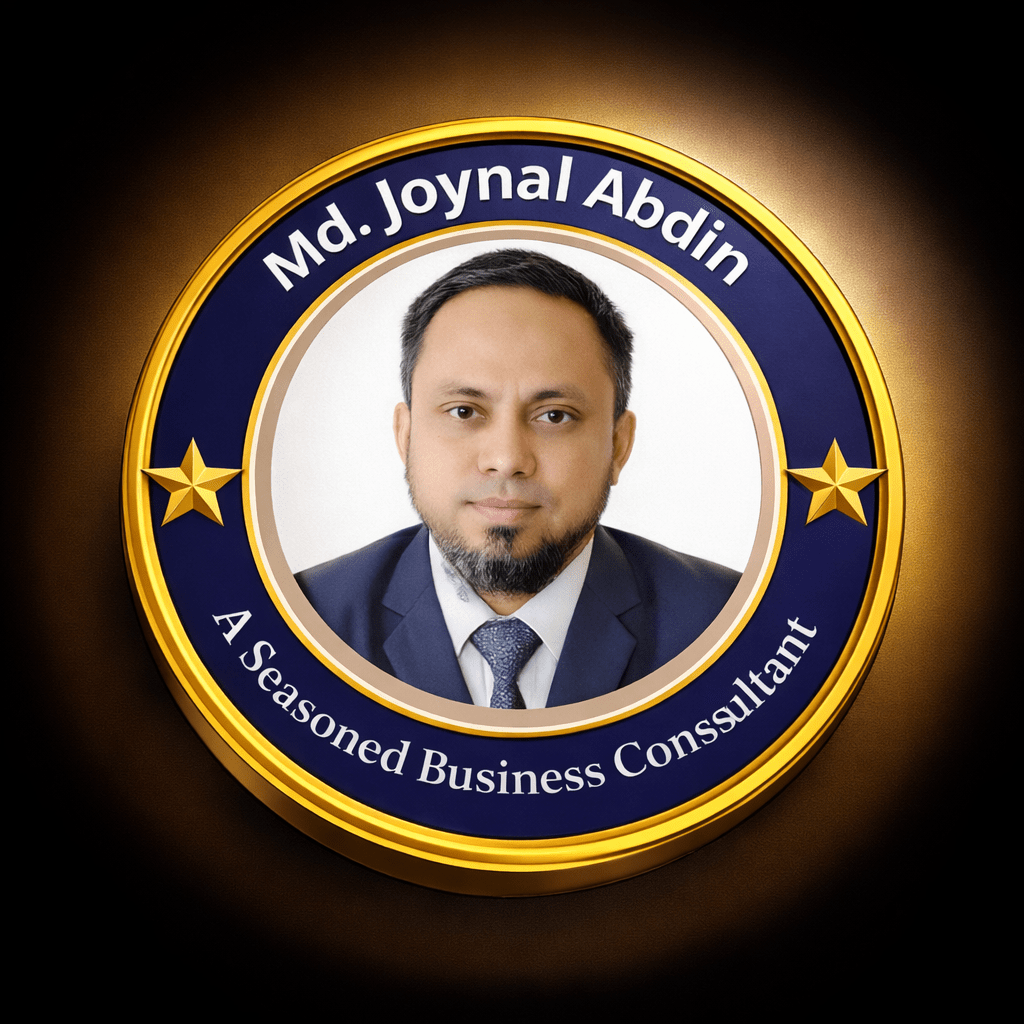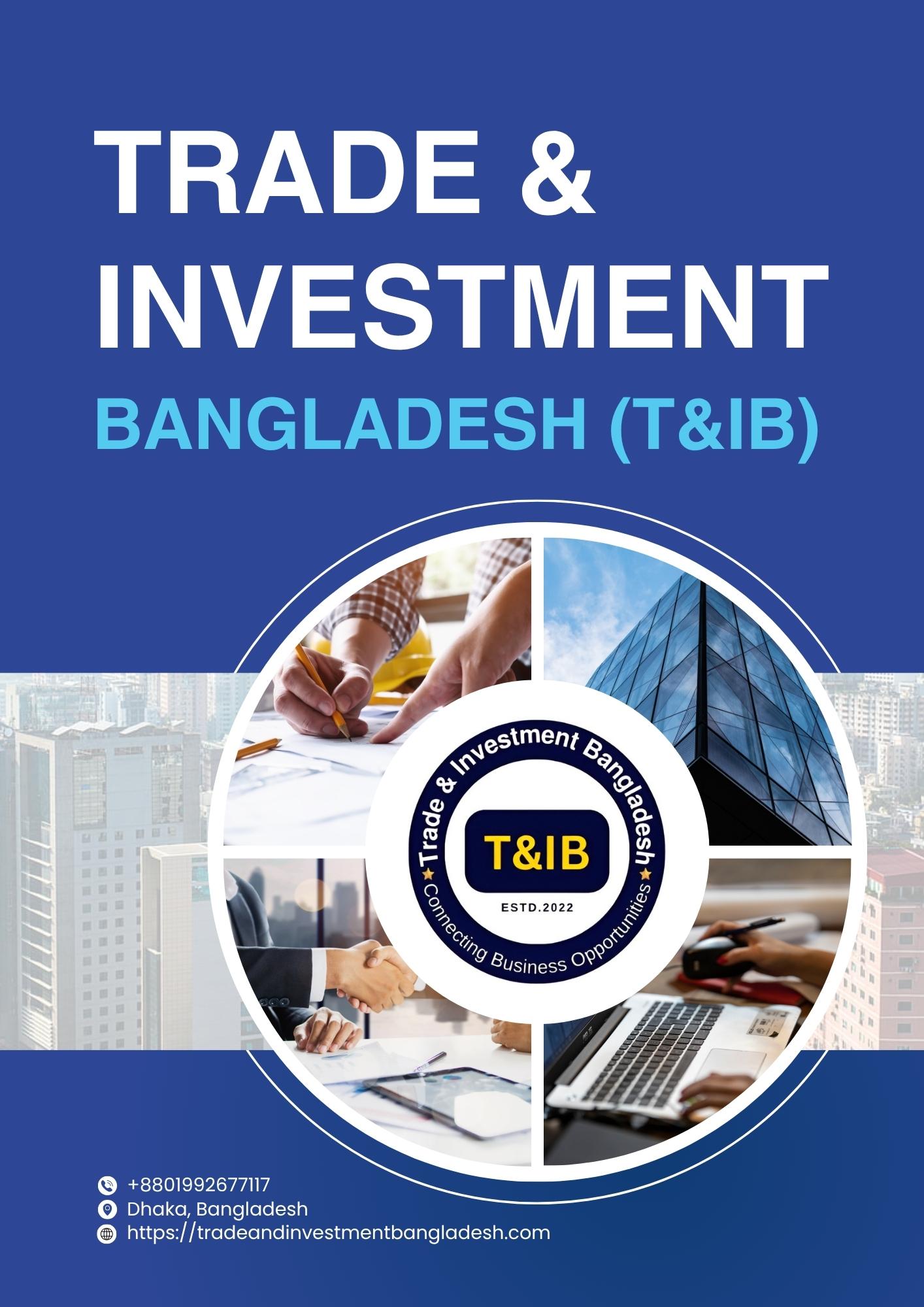Consultant
Founder & CEO, Trade & Investment Bangladesh (T&IB)
Executive Director, Online Training Academy (OTA)
Secretary General, Brazil Bangladesh Chamber of Commerce & Industry (BBCCI)
In an increasingly complex and fast-changing global economy, organizations both large and small are turning to consultants for expert guidance, innovative strategies, and solutions tailored to their unique challenges. The profession of consulting has grown into a vital component of modern business, helping companies adapt, grow, and stay competitive.
Who is a Consultant?
A consultant is a professional who provides expert advice in a particular area of specialization, such as management, finance, information technology, human resources, marketing, or legal affairs. Unlike full-time employees, consultants are typically brought in temporarily to solve specific problems, improve performance, or manage change. Their role is not to run the business, but to offer actionable insights and help clients make informed decisions that lead to measurable improvements.
At its core, a consultant combines deep subject matter expertise with analytical and communication skills to understand the client’s needs, diagnose issues, and recommend the best course of action. In many cases, consultants also support the implementation process to ensure the proposed solutions are effectively executed.
The Growing Demand and Role of Consultants in Today’s Economy
The global business environment is evolving rapidly due to technology disruption, economic shifts, globalization, and increased competition. As a result, companies are increasingly relying on consultants to navigate this uncertainty and seize opportunities. Consultants now play a critical role in:
- Driving digital transformation across industries
- Ensuring compliance and risk management in a stricter regulatory landscape
- Enhancing operational efficiency and reducing costs
- Supporting startups and SMEs in building sustainable business models
- Facilitating strategic planning and innovation in larger enterprises
Moreover, governments and non-profits also use consultants to improve public services, manage development projects, and implement policy reforms. The rise of remote work and freelance platforms has further democratized consulting, allowing professionals to offer their services across borders, often from the comfort of their home offices.
A Brief History and Evolution of Consulting
The origins of consulting as a formal profession can be traced back to the early 20th century, particularly in the United States and Europe. One of the first recognized management consulting firms, Arthur D. Little, was founded in 1886, followed by Booz Allen Hamilton and McKinsey & Company in the 1910s and 1920s. These firms initially focused on engineering and organizational efficiency.
Post-World War II, consulting expanded rapidly alongside industrial growth. The 1970s and 80s saw the rise of strategy consulting, as businesses sought more competitive direction. By the 1990s and 2000s, the field diversified into areas such as IT consulting, HR consulting, and financial advisory, aligning with the technology boom and globalization.
In the 21st century, the consulting industry has continued to evolve, with the emergence of specialized boutique firms, independent consultants, and digital consultancies. Today’s consultants must blend traditional knowledge with tech-savviness, agility, and cross-cultural awareness.
2. Types of Consultants
In today’s dynamic and diversified business environment, consultants bring targeted expertise to help organizations improve performance, adapt to changes, and seize new opportunities. Below are the key types of consultants, each playing a specialized role across industries:
1. Management Consultants: Strategy, Operations, Change Management
Management consultants are among the most widely recognized professionals in the consulting field. They advise organizations on strategic direction, operational efficiency, and transformation initiatives. Their work often involves analyzing internal processes, identifying inefficiencies, and recommending data-driven strategies to improve productivity, profitability, and competitiveness. In times of organizational change such as mergers, restructuring, or expansion management consultants help ensure smooth transitions and employee alignment. Their insights help leadership make informed decisions that drive long-term success.
2. IT Consultants: Digital Transformation, Cybersecurity, Software Solutions
IT consultants are critical in today’s tech-driven world. They help organizations adopt new technologies, streamline digital operations, and secure their information systems. Whether it’s implementing cloud solutions, automating workflows, integrating enterprise software (like ERP or CRM), or protecting systems from cyber threats, IT consultants ensure the business’s digital infrastructure aligns with its strategic goals. They also train staff on new technologies and assist with ongoing technical support. As businesses increasingly digitize, IT consultants reduce tech-related risks and boost efficiency.
3. Financial Consultants: Investment, Tax Planning, Cost Optimization
Financial consultants provide expert advice on managing money, maximizing investment returns, and ensuring fiscal health. They work with individuals, SMEs, and large corporations to design sound financial strategies covering budgeting, tax efficiency, capital allocation, risk mitigation, and retirement planning. For businesses, they analyze cash flow, reduce unnecessary expenditures, and recommend methods to optimize profits. Especially in uncertain economic times, financial consultants help maintain stability and promote growth through careful forecasting and planning.
4. HR Consultants: Recruitment, Training, Organizational Design
HR consultants play a vital role in shaping an organization’s workforce. They support companies in designing effective recruitment strategies, employee retention plans, and performance management systems. Additionally, they help create HR policies, ensure legal compliance, and lead employee training and development programs. When organizations go through structural changes, HR consultants assist in redesigning job roles and aligning the workforce with business objectives. Their work ensures a healthy, productive, and legally compliant workplace environment.
5. Marketing & Branding Consultants: Market Analysis, Brand Strategy, Digital Outreach
Marketing and branding consultants help businesses define their brand identity, understand their market, and reach their target audience more effectively. They conduct in-depth market research, analyze competitors, and develop brand positioning strategies that set the client apart. These consultants often lead product launch campaigns, redesign brand assets, and optimize pricing and distribution strategies. Their efforts improve brand visibility, customer loyalty, and market share key factors for sustainable growth in competitive markets.
6. Legal and Compliance Consultants
Legal and compliance consultants ensure that a business operates within local and international legal frameworks. They advise on regulatory requirements, draft and review contracts, and help establish policies to prevent legal risks and ethical violations. These consultants are especially valuable for companies operating across borders or in regulated industries like finance, healthcare, and energy. By keeping businesses compliant with evolving laws and industry standards, they protect reputations and reduce the risk of fines or lawsuits.
7. Digital Marketing Consultants
Digital marketing consultants specialize in leveraging online channels to promote brands, generate leads, and drive sales. They design and execute strategies involving search engine optimization (SEO), pay-per-click (PPC) advertising, email marketing, content marketing, and social media engagement. These consultants help businesses understand customer behavior using analytics tools and fine-tune campaigns for better conversion rates. Their role is critical for modern businesses looking to build a strong digital presence and outpace online competitors.
8. Export Support Consultants
Export support consultants assist businesses in navigating the complexities of international trade. They provide guidance on market selection, export documentation, regulatory compliance, tariff and tax structures, and logistics. These consultants often have deep knowledge of trade agreements, customs procedures, and global supply chains. By helping businesses overcome entry barriers, mitigate trade risks, and connect with international buyers, they enable exporters to grow beyond domestic markets and become competitive players in global commerce.
9. Specialized/Niche Consultants: Sustainability, Healthcare, Education, Export-Import, etc.
Specialized or niche consultants offer deep expertise in specific industries or focus areas. For example, sustainability consultants help businesses implement eco-friendly practices and meet ESG (Environmental, Social, and Governance) criteria. Healthcare consultants work with hospitals and clinics to improve patient care, operational efficiency, and compliance with health regulations. Education consultants advise academic institutions on curriculum development, digital learning, and student engagement strategies. Export-import consultants help navigate cross-border trade policies, finance options, and customs processes. These niche experts add immense value by solving unique, sector-specific challenges.
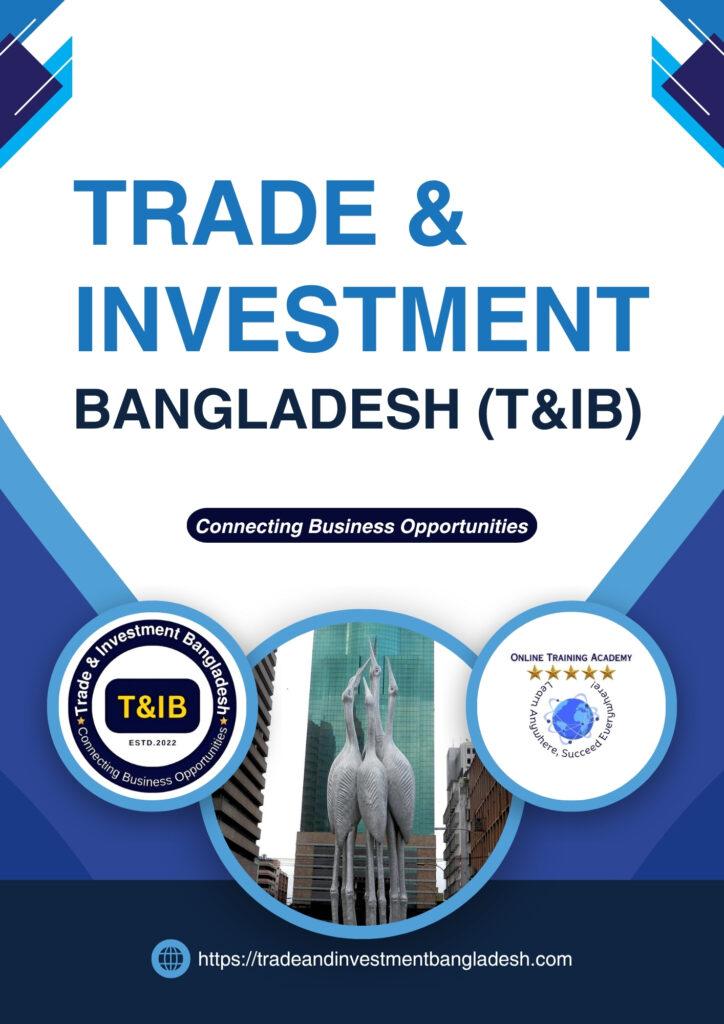
3. Key Skills and Qualities of a Successful Consultant
Success in the consulting profession requires more than just academic credentials or technical knowledge. A truly impactful consultant must possess a blend of analytical acumen, strong communication skills, deep industry insight, and a mindset geared toward client success. Below are the key skills and qualities that set top consultants apart:
1. Analytical and Problem-Solving Ability
At the heart of consulting lies the ability to assess complex problems, interpret data, and develop practical solutions. A successful consultant must think critically, break down challenges into manageable parts, and identify root causes instead of treating symptoms. They use both qualitative insight and quantitative tools to evaluate scenarios and propose actionable strategies. Whether it’s optimizing supply chains or developing new market strategies, strong analytical skills help consultants deliver real value to their clients.
2. Communication and Interpersonal Skills
Clear and persuasive communication is essential for consultants. They must be able to explain complex ideas in simple terms, whether in reports, presentations, or one-on-one discussions. Active listening is equally important, as understanding the client’s needs, goals, and pain points is key to offering relevant solutions. Additionally, interpersonal skills help build trust, manage diverse stakeholder relationships, and navigate sensitive situations—all crucial for successful project delivery and long-term client engagement.
3. Industry Expertise and Adaptability
Clients hire consultants for their specialized knowledge and fresh perspective. A strong grasp of industry trends, challenges, best practices, and regulatory issues is critical. However, no two projects are the same. Successful consultants must also be adaptable—capable of learning quickly, working in unfamiliar environments, and adjusting their approach to different company cultures and client expectations. This combination of expertise and flexibility allows them to stay relevant and effective across a wide range of assignments.
4. Integrity and Client-Focused Mindset
Ethical conduct is non-negotiable in consulting. Clients entrust consultants with confidential information and depend on their unbiased advice. A successful consultant upholds the highest standards of integrity ensuring transparency, honesty, and professionalism at every stage of the engagement. Just as important is a client-focused mindset: understanding that the consultant’s role is to serve the client’s best interests, even when that means challenging assumptions or delivering difficult truths.
5. Time Management and Project Handling
Consultants often juggle multiple tasks and deadlines, especially in fast-paced or high-stakes projects. The ability to prioritize, plan, and execute work efficiently is essential. Successful consultants are skilled in project management setting goals, assigning responsibilities, tracking progress, and ensuring timely delivery. They use tools and frameworks to stay organized and proactive, minimizing delays and maximizing outcomes for their clients. Strong time management not only ensures productivity but also enhances client satisfaction and project profitability.
4. The Consultant’s Work Process
A consultant’s journey with a client follows a structured, results-oriented process designed to solve problems, add value, and deliver measurable improvements. While the approach may vary depending on the type of consulting and the client’s needs, the following steps are generally followed in most engagements:
1. Client Engagement and Problem Diagnosis
The process begins with engaging the client to understand their needs, challenges, and expectations. This initial stage involves detailed discussions to uncover the problem areas and clarify the scope of the engagement. The consultant asks targeted questions, listens actively, and builds trust while identifying the real issues behind the symptoms. A clear and accurate diagnosis is crucial, as it sets the foundation for all future steps in the consulting process.
2. Proposal and Contract
Once the problem is well-understood, the consultant prepares a formal proposal outlining the objectives, methodology, deliverables, timeline, and estimated cost of the engagement. This proposal helps ensure both parties are aligned in expectations and responsibilities. Upon approval, a legally binding contract is signed to formalize the terms of collaboration. This phase ensures transparency and protects both the consultant and the client throughout the project.
3. Research, Data Collection, and Analysis
With the agreement in place, the consultant dives into data collection—gathering both qualitative and quantitative information relevant to the problem. This could involve stakeholder interviews, surveys, reviewing internal documents, analyzing financial or operational data, and studying competitors or industry benchmarks. The consultant then analyzes the data to identify trends, inefficiencies, root causes, and opportunities for improvement. Evidence-based analysis ensures the recommendations are realistic and tailored.
4. Strategy Formulation and Recommendation
Based on the research findings, the consultant develops strategic solutions designed to address the client’s core issues. This could include redesigning business processes, creating marketing plans, optimizing costs, or implementing new technologies. Recommendations are usually presented in a clear, structured format, often with multiple options and detailed rationale for each. The consultant may also guide the client in prioritizing initiatives based on impact, feasibility, and urgency.
5. Implementation Support (if applicable)
In many cases, the consultant’s role doesn’t end with delivering recommendations. Clients may require hands-on support to implement the proposed strategies. This can include developing action plans, training staff, setting up systems, or managing change initiatives. The consultant works closely with internal teams to ensure smooth execution, troubleshoot obstacles, and make adjustments as needed. Implementation support increases the chances of real, sustainable impact.
6. Reporting and Follow-Up
Finally, the consultant prepares detailed reports summarizing the project, outcomes, and lessons learned. These reports serve as a record of the work done and provide the client with tools for continued improvement. Follow-up meetings or check-ins may be scheduled to assess progress, gather feedback, and offer additional support. This last step reinforces accountability, maintains client relationships, and often opens the door to future collaborations.
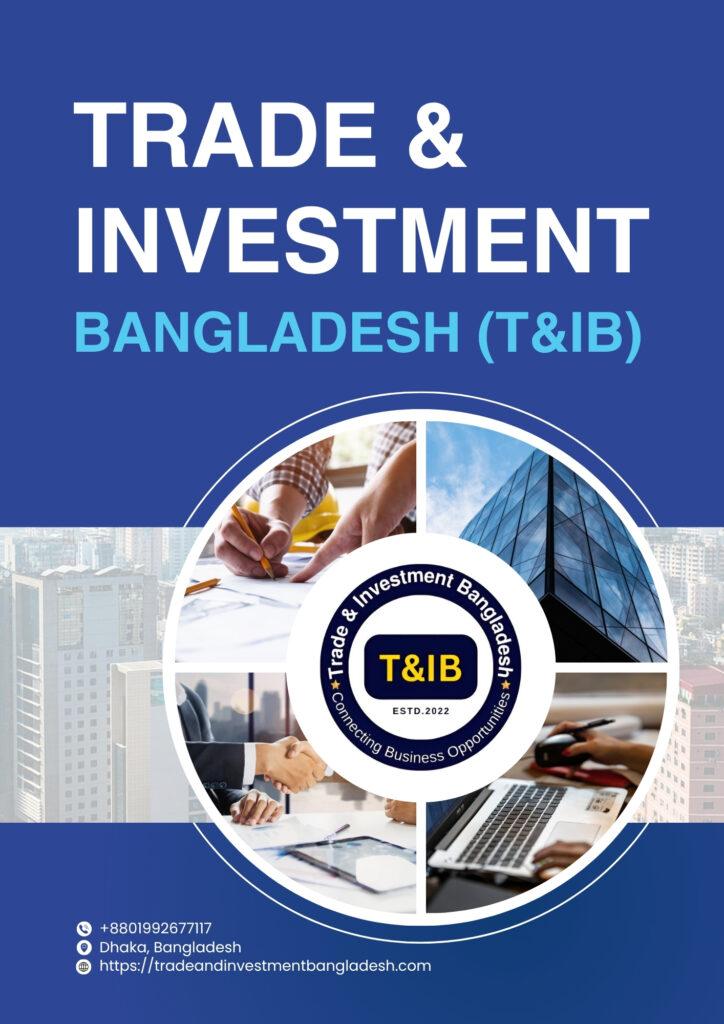
5. Benefits of Hiring a Consultant
In a competitive and ever-changing business environment, organizations often need external expertise to tackle challenges, implement strategic initiatives, or drive growth. Hiring a consultant provides businesses with access to specialized skills, insights, and support that may not exist in-house. Here are the key benefits of engaging a professional consultant:
1. Access to Expert Knowledge and Tools
Consultants bring with them a wealth of industry-specific expertise, proven methodologies, and advanced tools that have been refined across multiple projects and sectors. Whether it’s strategic planning, data analytics, HR policy development, or digital marketing, a consultant can deliver specialized knowledge that would take years to build internally. Their exposure to diverse clients and scenarios helps them apply best practices and avoid common pitfalls accelerating the path to success for the hiring organization.
2. Objective, Third-Party Perspective
One of the most valuable benefits of hiring a consultant is their objectivity. As external professionals, consultants are not influenced by internal politics, personal biases, or emotional attachments. They can assess situations with fresh eyes and offer honest, fact-based assessments even when the truth may be uncomfortable. This impartial perspective enables clearer decision-making and helps organizations identify issues that might be overlooked internally.
3. Cost Efficiency in Project-Specific Expertise
Hiring a full-time employee for a short-term or specialized project can be costly and inefficient. Consultants offer a flexible, on-demand solution providing high-level expertise only when needed. This saves businesses from long-term salary commitments, training expenses, and employee overhead. Consultants are particularly cost-effective for one-time projects such as digital transformation, market entry, or restructuring, where their focused involvement delivers results without ongoing obligations.
4. Change Facilitation and Risk Reduction
Implementing change whether it’s organizational restructuring, technology adoption, or entering a new market is often met with resistance and uncertainty. Consultants are skilled change agents who can guide teams through transitions with clarity and confidence. They provide structured change management processes, mitigate resistance, and ensure smoother adaptation. Moreover, their experience across industries allows them to foresee and reduce risks before they impact the business, ensuring more resilient and successful transformation efforts.
6. Challenges in Consulting
While consulting can be a highly rewarding profession, it also presents a unique set of challenges that require strategic thinking, emotional intelligence, and professional discipline. Navigating these hurdles is essential for maintaining credibility, delivering client value, and sustaining long-term success. Below are some of the most common challenges consultants face:
1. Gaining Client Trust and Buy-In
One of the initial and most critical hurdles for any consultant is earning the client’s trust. Clients may be skeptical of outsiders, especially when past experiences with consultants were underwhelming or when internal stakeholders feel threatened by external input. Establishing credibility requires clear communication, consistent professionalism, and a demonstrated understanding of the client’s business environment. More importantly, achieving “buy-in” convincing clients to adopt and act on your recommendations often involves navigating organizational dynamics and influencing decision-makers with tact and evidence.
2. Managing Expectations and Scope Creep
Clients often have ambitious expectations and may assume that consultants can deliver quick fixes to deep-rooted problems. If these expectations are not clearly managed from the outset, misunderstandings can lead to dissatisfaction. Additionally, “scope creep” when clients continuously add tasks outside the agreed-upon scope can dilute focus, stretch resources, and impact project timelines. Successful consultants must clearly define deliverables in contracts, regularly revisit objectives, and diplomatically push back when boundaries are crossed to maintain project integrity.
3. Staying Updated with Industry Trends
The consulting world is highly dynamic, with new tools, methodologies, and market realities emerging frequently. Clients expect their consultants to bring cutting-edge knowledge and insights to the table. To meet these expectations, consultants must invest time in continuous learning attending industry conferences, enrolling in training programs, following thought leaders, and studying market developments. Falling behind can quickly diminish a consultant’s relevance and competitive edge in an industry where innovation is critical.
4. Ethical Dilemmas and Confidentiality Issues
Consultants are often exposed to sensitive company data, internal conflicts, and strategic decisions. Upholding confidentiality and maintaining ethical boundaries is not only a professional obligation but also key to building long-term relationships. However, situations may arise where consultants face conflicts of interest, are pressured to manipulate data, or must report uncomfortable truths. Navigating such ethical dilemmas requires a strong moral compass, clear professional boundaries, and, sometimes, the courage to walk away from engagements that compromise integrity.

7. Consulting in the Age of Technology
The consulting industry has been significantly reshaped by advancements in technology, making services more accessible, efficient, and data-driven than ever before.
Remote Consulting and Digital Platforms
The shift to virtual consulting has eliminated geographical barriers, allowing consultants to serve clients globally via video conferencing, collaboration tools, and cloud-based systems. Platforms like Zoom, Microsoft Teams, and Slack now serve as virtual boardrooms, enabling real-time communication and streamlined project management.
Use of AI and Data Analytics in Decision-Making
Artificial Intelligence (AI) and data analytics are revolutionizing how consultants deliver insights. From predictive modeling and process automation to customer behavior analysis, these tools allow consultants to make faster, evidence-based recommendations and identify hidden patterns that human analysis might miss.
Online Consulting Marketplaces (Upwork, Toptal, etc.)
Freelance platforms such as Upwork, Toptal, and Fiverr have democratized access to consultancy services. These marketplaces enable clients to find specialized consultants quickly, while professionals can showcase expertise, build portfolios, and earn without traditional agency structures.
Cybersecurity and Data Privacy Concerns
With the growing reliance on digital tools, cybersecurity and data protection have become top priorities. Consultants must ensure secure handling of sensitive client information, comply with international data privacy regulations (such as GDPR), and implement best practices for encryption, authentication, and risk mitigation.
8. Starting a Career in Consulting
A career in consulting offers dynamic challenges, intellectual engagement, and the opportunity to solve real-world problems across industries. However, breaking into the field requires a strategic combination of education, experience, and personal branding.
Academic Background and Certifications
A strong educational foundation is often the first step. While not mandatory, degrees in business, economics, engineering, or social sciences can provide a competitive edge. Advanced degrees like an MBA are highly valued, especially for roles in management and strategy consulting. Professional certifications such as PMP (Project Management Professional), Lean Six Sigma, or Certified Management Consultant (CMC) can further validate expertise and improve credibility in niche domains.
Gaining Initial Experience
Aspiring consultants should seek internships, apprenticeships, or entry-level roles in consulting firms or corporate strategy departments. These experiences help develop analytical thinking, client interaction skills, and industry exposure. Volunteering for non-profits or taking on pro bono projects can also offer hands-on experience while building a portfolio.
Freelancing vs Joining a Firm
Beginners often face the decision of working independently or joining an established consultancy. Joining a firm provides mentorship, structured career growth, and access to large clients. In contrast, freelancing offers flexibility, autonomy, and the potential to explore diverse industries early on. While freelancing may be more challenging at the start, platforms like Upwork, Toptal, and LinkedIn can help build visibility and attract initial clients.
Building a Personal Brand and Network
Success in consulting heavily depends on relationships and reputation. Developing a strong personal brand through content creation, speaking engagements, certifications, or thought leadership can help differentiate oneself in a crowded market. Networking at conferences, online forums, and alumni events also opens doors to opportunities and referrals. Maintaining a professional online presence, particularly on LinkedIn, is critical for attracting both clients and collaborators.
9. Building a Consulting Business
Launching a successful consulting business goes beyond expertise it requires strategic planning, legal preparation, and continuous marketing. Whether you’re an independent consultant or planning to build a firm, each stage demands deliberate decisions and long-term thinking.
Choosing a Niche and Developing a Unique Value Proposition
The consulting market is competitive, so identifying a clear niche is essential. Focus on an industry, function, or problem where you have deep expertise and can offer measurable value. Then, craft a unique value proposition (UVP) that communicates what sets you apart whether it’s your methodology, results, pricing flexibility, or specialized knowledge. A well-defined niche and UVP help attract the right clients and establish your authority.
Legal Setup, Pricing Models, and Contracts
Start by choosing the right legal structure sole proprietorship, partnership, LLC, or private limited company based on liability and tax considerations. Work with a legal professional to draft standard service contracts covering scope, timelines, confidentiality, and payment terms. Choose pricing models (hourly, per-project, retainer-based, or performance-based) that align with your service type and client expectations. Transparent and enforceable agreements protect both parties and foster professional relationships.
Marketing Strategies and Lead Generation
To attract clients, invest in digital marketing including a professional website, SEO, content marketing, and social media. Use platforms like LinkedIn to showcase your insights, client testimonials, and case studies. Consider webinars, blogs, or whitepapers to position yourself as a thought leader. Additionally, referral networks, cold outreach, and partnerships with other consultants can significantly boost lead generation in the early stages.
Scaling Up with a Team or Digital Products
As your client base grows, consider scaling through hiring junior consultants or administrative staff. This allows you to focus on strategic tasks and high-value clients. Another path to scalability is creating digital products such as online courses, templates, eBooks, or toolkits. These assets generate passive income and expand your reach without significantly increasing workload. Efficient use of CRM tools, project management software, and automation can further streamline operations.
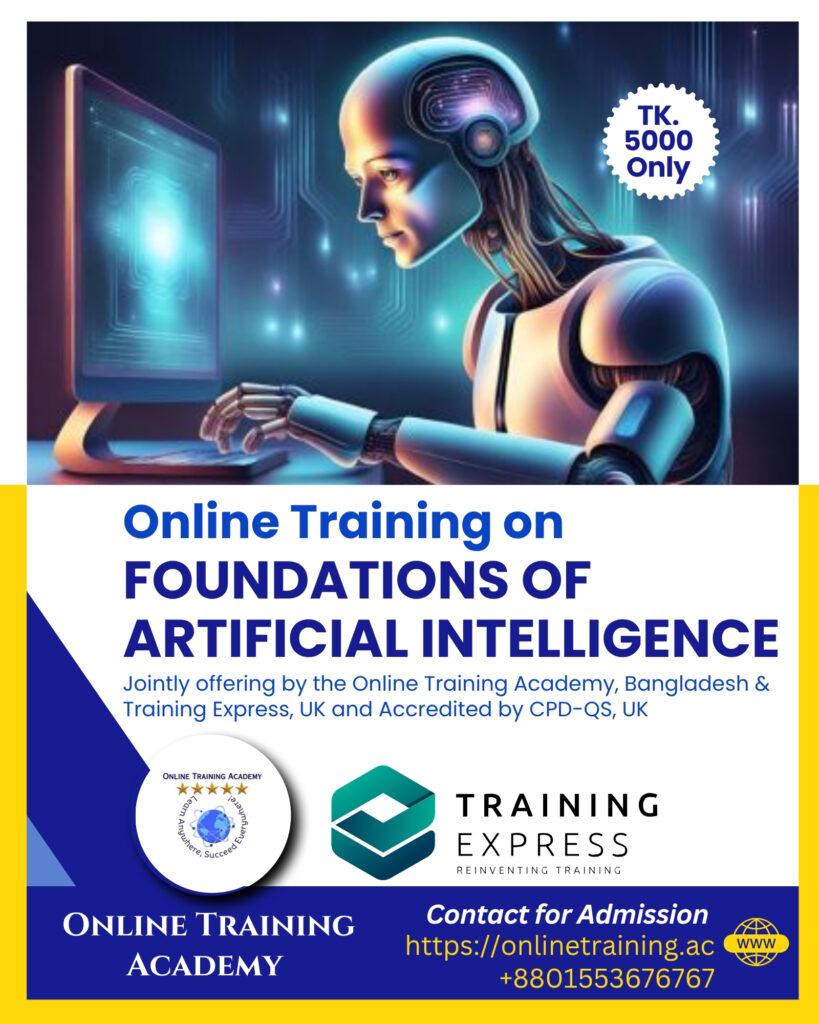
10. The Future of Consulting
The consulting industry is rapidly evolving, driven by technological innovation, shifting client priorities, and expanding global opportunities. Understanding these trends is crucial for consultants aiming to stay ahead and capitalize on new prospects.
Trends Shaping the Industry
Key trends reshaping consulting include the growing emphasis on Environmental, Social, and Governance (ESG) criteria, as companies prioritize sustainability and ethical business practices. The integration of Artificial Intelligence (AI) and machine learning enhances data-driven decision-making and automates routine tasks, allowing consultants to focus on strategic insights. Furthermore, the rise of global consulting firms and cross-border collaboration reflects the interconnectedness of today’s business environment.
Emerging Markets and Sectors for Consultants
Consultants will find increasing demand in sectors such as renewable energy, healthcare innovation, digital transformation, fintech, and cybersecurity. Emerging markets in Asia, Africa, and Latin America are becoming hotspots for growth, requiring expertise tailored to local business climates and regulatory landscapes.
Opportunities for Bangladeshi Consultants in International Markets
Bangladeshi consultants are uniquely positioned to tap into international opportunities due to the country’s growing expertise in IT services, textile and manufacturing, and supply chain management. By leveraging global digital platforms, networking with diaspora communities, and enhancing credentials through international certifications, Bangladeshi professionals can expand their footprint. Cross-border consulting projects, especially within South Asia and emerging economies, offer promising avenues for collaboration and revenue growth.
11. Conclusion
Consultants play a vital role in today’s fast-paced and complex business environment by offering expert guidance, innovative solutions, and objective perspectives that help organizations navigate challenges and seize opportunities. Their ability to adapt quickly and deliver measurable value makes them indispensable partners across industries.
For aspiring consultants, the journey may be demanding but deeply rewarding. Building strong foundations through education, practical experience, and continuous learning is key to unlocking a successful consulting career. Embracing technology, developing a unique personal brand, and cultivating a robust network will set you apart in this competitive field.
As the consulting landscape continues to evolve with emerging trends and global shifts, adaptability and a commitment to lifelong learning are essential. By staying curious and agile, consultants can not only survive but thrive transforming challenges into opportunities for themselves and their clients.
